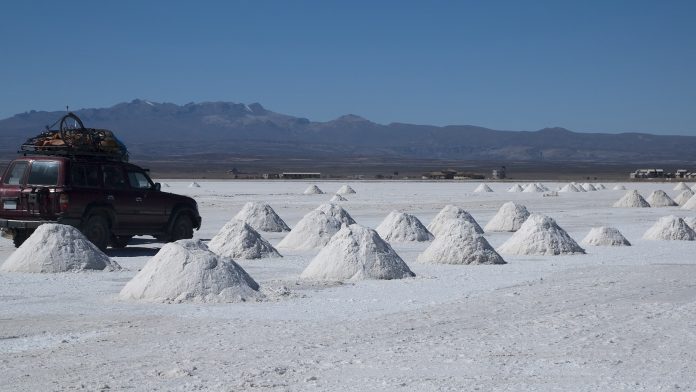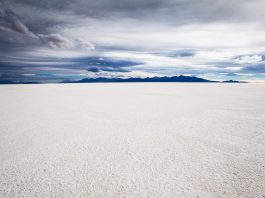With the growing demand for lithium worldwide, South American lithium reserves are key in ensuring that this demand is met.
Lithium is a vital component in the global energy transition, powering electric vehicles and storing renewable energy. South America holds the majority of the world’s identified lithium reserves, making it a crucial player in meeting the growing demand for this critical resource. With Chile leading commercial production and Argentina and Bolivia forming part of the ‘Lithium Triangle,’ these countries are at the forefront of lithium production.
However, deriving significant profits from lithium production is challenging due to the lengthy value chain that creates batteries, with most of the profits going to Asian-based battery manufacturers.
To overcome this challenge, South American countries must invest in localising more of the value chain to derive substantial benefits from their natural resources.
This article will explore how South America can play a key role in shaping a sustainable future by harnessing its vast lithium reserves and investing in localising more of the value chain to reap maximum benefits from this critical resource.
Understanding the importance of lithium in the energy transition
If you have ever wondered how electric cars can drive without gasoline, the answer lies in a tiny but powerful metal that is becoming increasingly important in our energy future. Lithium is a key component of the batteries that power these vehicles, as well as battery storage systems for renewable technology and other forms of energy storage. As the world transitions towards cleaner sources of energy, demand for lithium is expected to continue growing at a rapid pace.

The global lithium market is currently dominated by South American countries such as Chile, Argentina, and Bolivia. These nations are home to some of the largest lithium reserves in the world and have been ramping up production to meet rising demand.
However, challenges such as investment constraints and difficult geographic conditions have slowed down progress in some areas.
Despite these obstacles, there is no doubt that lithium will play a crucial role in achieving a more sustainable future. From powering electric vehicles to storing solar energy for use during peak hours, this versatile metal has already proven its worth in a variety of applications.
As more attention is paid to developing green technologies, it is likely that we will see even greater innovation and investment in the lithium market going forward.
The role of South America in global lithium production
The utilisation of lithium reserves in the Andes region is heavily dependent on investment and geographic conditions, with Chile leading the way in commercial production. While Bolivia and Argentina have larger lithium reserves, they face hurdles such as political instability and lack of infrastructure.
In contrast, Chile’s stable political environment and well-developed mining sector have allowed it to attract foreign investment and expand its lithium industry.
Market competition also plays a significant role in South America’s lithium production. The top ten battery manufacturers by market share are all based in Asian countries, which means that South American countries need to make bigger investments to localise more of the value chain if they want to derive significant profits.
Moreover, resource management and environmental impact are critical concerns as mining activities could have adverse effects on water supply and land use.

Technological advancements could be a potential game-changer for South America’s lithium industry. For instance, innovation in electric vehicle technology would increase demand for batteries containing lithium. This would lead to higher prices for the metal, making it economically viable for smaller producers like Bolivia and Argentina to enter the market.
However, this depends on whether these countries can overcome issues with energy infrastructure and attract foreign investment into their respective mining sectors without compromising local communities’ interests.
Challenges faced by lithium-producing countries in South America
It is an absolute nightmare for countries in the Andes region to reap any significant profits from their vast lithium reserves. Despite being home to the majority of identified global lithium, Argentina and Bolivia are lagging behind Chile in commercial production due to investment difficulties and geographic obstacles.
The UNDP reports that making money out of lithium production is challenging because most of the industry’s profits come from a lengthy value chain that creates batteries.
South American countries face profit challenges because they only participate in one step of the battery value chain. The top ten battery manufacturers by market share are all based in Asian countries, meaning that localisation efforts will be necessary for South American countries to derive significant profits.
Therefore, it is crucial for South American countries with significant lithium reserves to invest heavily in localising more of the battery value chain if they want to benefit financially from their resources.
This may involve partnering with foreign companies or governments, increasing domestic investment in technology and infrastructure, and implementing policies that incentivise localisation efforts.
Potential benefits and risks of lithium as a key component of renewable energy
As the world looks to shift towards cleaner sources of power, one material stands out as a potential game-changer in the race toward a sustainable future: lithium. Lithium has become increasingly important due to its use in rechargeable batteries for electric vehicles and renewable energy storage systems.
However, there are concerns about the potential environmental impact of lithium mining and resource depletion.
Lithium mining can have significant environmental consequences, including water pollution and degradation of natural habitats.
Additionally, as demand for lithium grows, there is a risk of resource depletion, particularly in countries with high concentrations of lithium reserves. To mitigate these risks, it is essential that ethical mining practices are implemented by companies involved in lithium production.
Despite the challenges posed by lithium mining, technological advancements have made it possible to extract the mineral more efficiently while minimising its impact on the environment.
Moreover, as alternative energy sources continue to develop and gain prominence globally, demand for lithium is expected to increase further. This presents an opportunity for South American countries with significant reserves of this valuable mineral to capitalise on their resources while ensuring they are mined responsibly and sustainably.
Looking towards a sustainable future with lithium and South America
Looking towards a sustainable future, there is a material that could be a game-changer in the race towards cleaner sources of power. Lithium has been identified as a key component in renewable energy storage, and South America holds vast reserves of this valuable mineral.
However, investment opportunities must be pursued to ensure that these resources are extracted sustainably.
The production of lithium can have significant environmental impacts, including water depletion and pollution from chemicals used in extraction processes. To mitigate these risks, technological advancements are necessary to improve the efficiency of extraction and minimise negative environmental impacts.
Additionally, political implications must be considered as countries seek to balance economic development with sustainable resource management.

Despite these challenges, market demand for lithium continues to grow as more industries shift towards renewable energy sources. As such, it is crucial for South American countries to prioritise sustainable extraction practices while also investing in localising more of the value chain to derive significant profits from lithium production. By doing so, they can help drive the global energy transition towards a more sustainable future without compromising on economic growth or environmental well-being.
South American lithium reserves are at the forefront of the global energy transition
As renewable energy sources continue to gain momentum, demand for this critical resource is expected to skyrocket in the coming years.
However, localising more of the value chain and overcoming challenges such as environmental concerns and foreign domination of battery manufacturing will be key for these countries to derive significant profits.
As they navigate these challenges, South American countries must also consider the potential benefits and risks associated with lithium production. From powering electric vehicles to storing renewable energy, lithium has the potential to revolutionise our energy systems.
But as with any resource extraction, it is crucial that its impacts on local communities and ecosystems are carefully managed.
Overall, harnessing the power of lithium while ensuring sustainable practices will require collaboration between governments, industry players, and communities. Preparing for a sustainable future means leveraging South America’s role in global lithium production while prioritising responsible practices that benefit everyone involved.










